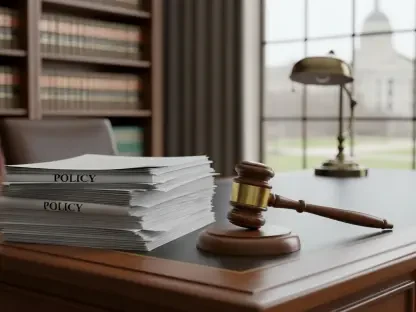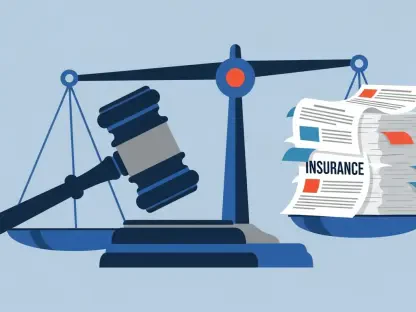The Rawlins City Council recently encountered a pivotal decision that has stirred a discussion about aligning local vehicle insurance laws with state mandates. At the heart of this issue is a proposed amendment to Rawlins municipal code section 10.15.070, which would require drivers without ownership of their vehicles to carry liability insurance. This alignment aims to streamline enforcement from local to state standards, raising questions about its implications for both legal adherence and community safety.
The Proposed Amendment and Enforcement Dynamics
Bridging Local and State Legal Gaps
A major element of the proposed ordinance seeks to empower Rawlins police officers to issue municipal citations to uninsured drivers operating vehicles they do not own. Presently, such cases necessitate redirection to the Carbon County Circuit Court, where penalties are often more severe. Pinita Maberry-Nave, the city attorney, indicated that this amendment could close an enforcement gap by curbing frequent violations through local jurisdiction. Her position emphasizes the practical need for Rawlins to handle such cases independently, thereby facilitating more efficient legal processes.
Providing local law enforcement the ability to issue citations for insurance violations could present a more balanced approach to penalty severity. While this would potentially decrease the frequency of escalated court proceedings, it also provokes a discussion on whether such measures might inadvertently encourage revenue generation. Councilman Derek Elliott advocated for the amendment, perceiving it as a pragmatic approach that would not only ensure compliance but also enable the city to collect fines directly linked to local enforcement actions. This perspective places emphasis on practical governance and the symbiotic relationship between jurisdictional control and financial accountability.
Administrative Perspectives on Legal Consistency
While the proposal strives for alignment with state laws, some city officials raised concerns about the possible motivations and implications behind this move. Councilman Steve Sanger voiced skepticism, suggesting that enforcing state laws locally may suffice without the added layer of municipal oversight. He speculated that financial gain might overshadow public safety concerns, questioning the primary intent of the ordinance. Sanger’s opposition highlights an ongoing debate regarding the balance between administrative efficiency and financial motivations.
Rawlins Police Chief Mike Ward offered additional insight by pointing out that municipal fines, intended as deterrents, are generally less severe than those imposed by higher courts. This lower threshold allows officers discretion in determining penalties, facilitating both preventative and punitive action. Ward emphasized that the underlying goal is to discourage unlawful conduct rather than boost fiscal revenues. Balancing deterrence with financial impacts remains a central theme in the discussion over local versus state jurisdiction in enforcing insurance requirements.
The Council’s Deadlock and Broader Implications
Legislative Stalemate and Its Consequences
The outcome of the council meeting resulted in a deadlock, with three members backing the amendment and three opposing it, leaving the ordinance unpassed due to the mayor’s absence during the vote. This split decision underscores the divergent viewpoints within the council and the complexity of reconciling them to align municipal laws with state standards. The stalemate reflects broader challenges in achieving consensus when policy changes intersect with financial objectives and enforcement philosophies.
The lack of movement on this ordinance leaves the existing enforcement structure intact, meaning cases will continue to be handled by the Carbon County Circuit Court. The status quo persists, with city officials grappling with the impact of transferring potentially habitual violators to a system that levies harsher punishments. Critics of the amendment argue that this approach may inadvertently address only the symptoms but not the root causes of insufficient insurance coverage among non-owner drivers.
Evaluating the Path Forward
The Rawlins City Council recently faced a key decision that has sparked a significant dialogue around the synchronization of local vehicle insurance laws with those mandated at the state level. Central to this discussion is a proposed amendment to Rawlins municipal code section 10.15.070, which would mandate that drivers, even if they do not own the vehicles they operate, must possess liability insurance. This intended revision seeks to harmonize enforcement protocols, ensuring that local regulations do not diverge from state standards. Such an alignment is poised to have substantial implications, potentially enhancing legal compliance and bolstering community safety. The move raises important questions regarding its impact on residents’ adherence to legal requirements and the broader effects on public welfare. As the council deliberates, the community is closely observing, eager to understand how these potential changes might shape daily life and societal responsibility in Rawlins.









